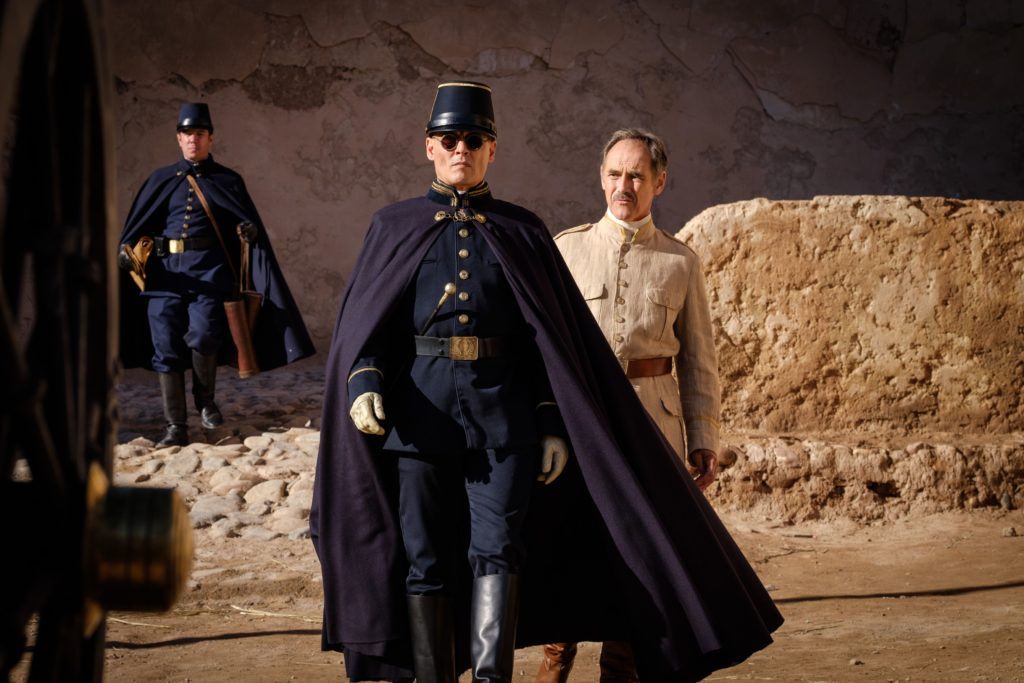Waiting for the Barbarians

Johnny Depp and Mark Rylance star in WAITING FOR THE BARBARIANS. (Photo: Samuel Goldwyn Films)
Despite an abundance of scenic arid landscapes, Waiting for the Barbarians becomes lost in the desert.
This period drama about colonialism run amok marks a stylish English language debut for acclaimed Colombian filmmaker Ciro Guerra (Embrace of the Serpent). Yet much of the inherent sociopolitical subtext is overwhelmed by surface quirks and structural manipulations.
Set in 19th century Asia, the film chronicles a year in the life of a magistrate (Mark Rylance) who oversees a remote outpost that has remained peaceful despite rumored threats of impending war with external forces.
That’s what prompts a visit from a ruthless colonel (Johnny Depp) who is sent by the government to quell any potential uprising. His eccentricities match his offbeat methods. “Pain is truth. All else is subject to doubt,” he explains cryptically.
Amid simmering distrust between the two men, the absurdity of their circumstances clashes with the underlying brutality behind the colonel’s interrogations.
As they clash, the magistrate is forced into exile, drawn to a girl (Gana Bayarsaikhan) whose nomadic tribe is among the oppressed under the colonel’s regime. Later, he returns to find conditions have worsened under the colonel’s assistant (Robert Pattinson) with an unwavering loyalty to the empire.
You can draw thematic parallels with various contemporary global immigration crises, as the film admirably advocates for compassion over callous indifference and systemic intolerance. However, it makes vague references to threats from outsiders while intentionally concealing context, without much of a payoff.
The screenplay by J.M. Coetzee, based on his novel, is divided into seasonal chapters, which are then chronologically shuffled. It lacks sufficient clarity in probing the harsh nature of its fictional frontier, where warmongering imperialists stir paranoia among the innocent locals.
Between the understated performances, muted emotions, and even a droll sense of humor in the opening act — such as an amusing exchange regarding the colonel’s sunglasses — the film struggles to maintain a consistent tone and narrative rhythm.
Rylance (Bridge of Spies) provides an emotional anchor with his deeply felt portrayal. Although his dialogue is relative sparse, the way in which the magistrate’s devoted relationship results in a call to action really resonates.
Such poignancy is only intermittent in Waiting for the Barbarians, which never musters much excitement in following the magistrate’s existential odyssey through injustice and redemption. Allegorical or not, the result is more tedious than provocative.
Not rated, 113 minutes.